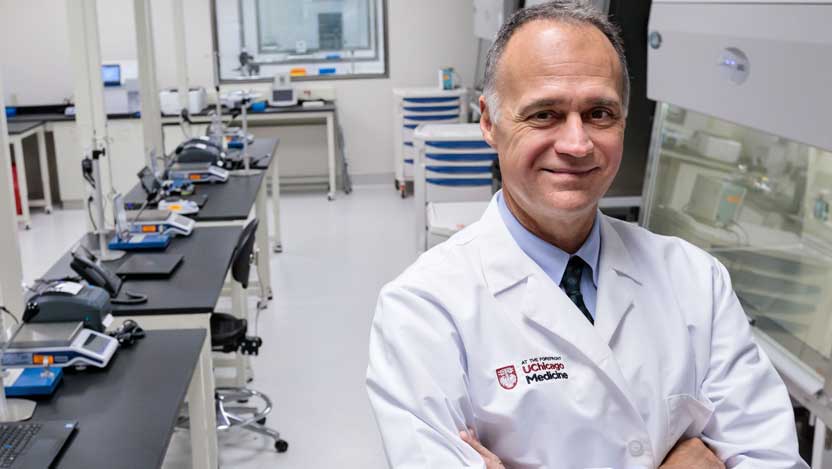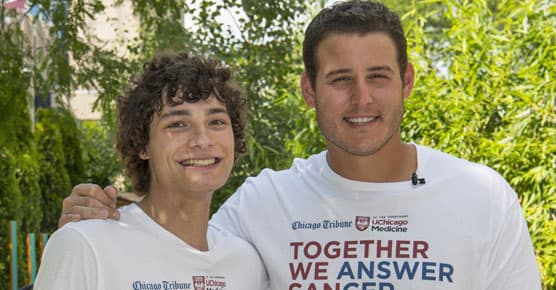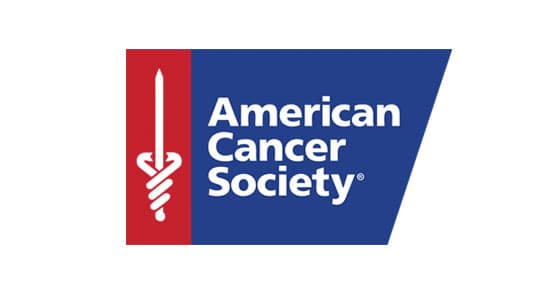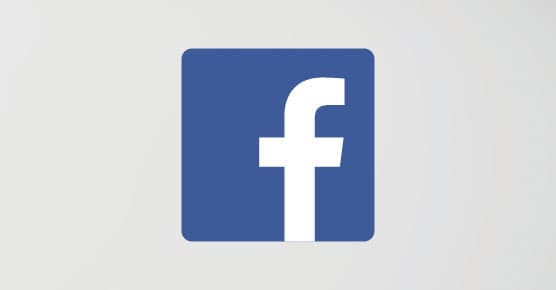UChicago Medicine surges ahead with revolutionary CAR T-cell cancer treatment

Since commercial approval two years ago to treat some blood cancers, CAR T-cell therapy continues to show so much promise that University of Chicago Medicine researchers have expanded their studies to see how else the breakthrough treatment can be used to fight other forms of the disease.
In 2017, the Food and Drug Administration approved the use of CAR T-cell therapy for adults with diffuse large B-cell lymphoma and for children and young adults with acute lymphoblastic leukemia. UChicago Medicine became the first site in Chicago and Illinois to be certified to offer both treatments, which involves a revolutionary process that uses a patient’s own genetically re-engineered T cells to find and destroy cancer cells. As of September 2019, the academic health system has treated 100 patients with CAR-T.
UChicago Medicine — which offers the most CAR-T trials in the Midwest — is now conducting 15 studies for the blood diseases multiple myeloma, acute lymphoblastic leukemia, mantle cell lymphoma, follicular lymphoma and chronic lymphocytic leukemia. Trials for solid tumors like lung, cervical, and head and neck cancers are in the early stages.
We are offering truly leading-edge therapies that nobody else is offering.
“These trials are not widely available, and some of them are the first worldwide” said Michael Bishop, MD, director of UChicago Medicine’s Hematopoietic Cellular Therapy Program. “They’re only being done at select institutions, and we have been asked to do many of them.”
Bishop and his team have seen encouraging results.
“We’re seeing responses greater than 90% in adult lymphoblastic leukemia, and the multiple myeloma success rate is greater than 50% and even higher in some studies,” he said.
In large B-cell lymphoma, the success rate is 30% to 40% for long-term complete remissions. “We’re seeing great successes, but we've got to improve,” he added. “We’re now trying to understand why certain people respond and why others don’t.”
While CAR T-cell therapy has been a transformational innovation in cancer treatment, its success in treating all cancers has been limited. For example, the therapy has not been very effective on soft tumors such as ovarian cancer, which are difficult for the reprogrammed T cells to find, Bishop said.
In areas CAR-T has shown promise, progress has been moving quickly. UChicago Medicine is poised to become the first hospital in the country to offer ready-made “off-the-shelf” CAR-T cells to patients. This past summer, UChicago Medicine opened its Advanced Cellular Therapeutics Facility, a 10,000-square-foot state-of-the-art laboratory that can process and manufacture cells for therapeutic purposes, including CAR T-cell therapy.
Soon, rather than having a patient's own blood cells removed and sent to a lab for genetic engineering, which can take weeks, in-stock CAR-infused T cells will come from a young, healthy donor. This would speed up delivery of the "living drug" to UChicago Medicine patients.
Also, pharmaceutical companies are racing to create more CAR T-cell and gene therapy products, aimed at targeting specific diseased cells without harming normal, healthy cells.
Interest continues to grow in the hospital’s CAR-T trials. In September 2019, UChicago Medicine’s CAR T-Cell Symposium drew a sold-out, standing-room crowd.
“We are offering truly leading-edge therapies that nobody else is offering,” Bishop said. “We hope we are going to improve patients’ lives and outcomes.”

CAR T-Cell Therapy
CAR T-cell therapy supercharges a patient's white blood cells to find and destroy cancer cells. UChicago Medicine research played a key role in the development of this exciting new immunotherapy.
View videos and learn more
Together We Answer Cancer
UChicago Medicine has joined forces with several Chicago media partners to support the American Cancer Society’s mission to free the world from cancer.

Make a Donation to Cancer Research
The ACS has invested nearly $5 billion in cancer research since 1946 in its quest to free the world from the disease. Support the groundbreaking advances cancer research makes possible.

Share Your 'Together' Story
Each person’s journey to cancer survivorship draws strength from togetherness and teamwork. Share your “together” story on Facebook using #AnswerCancer.
